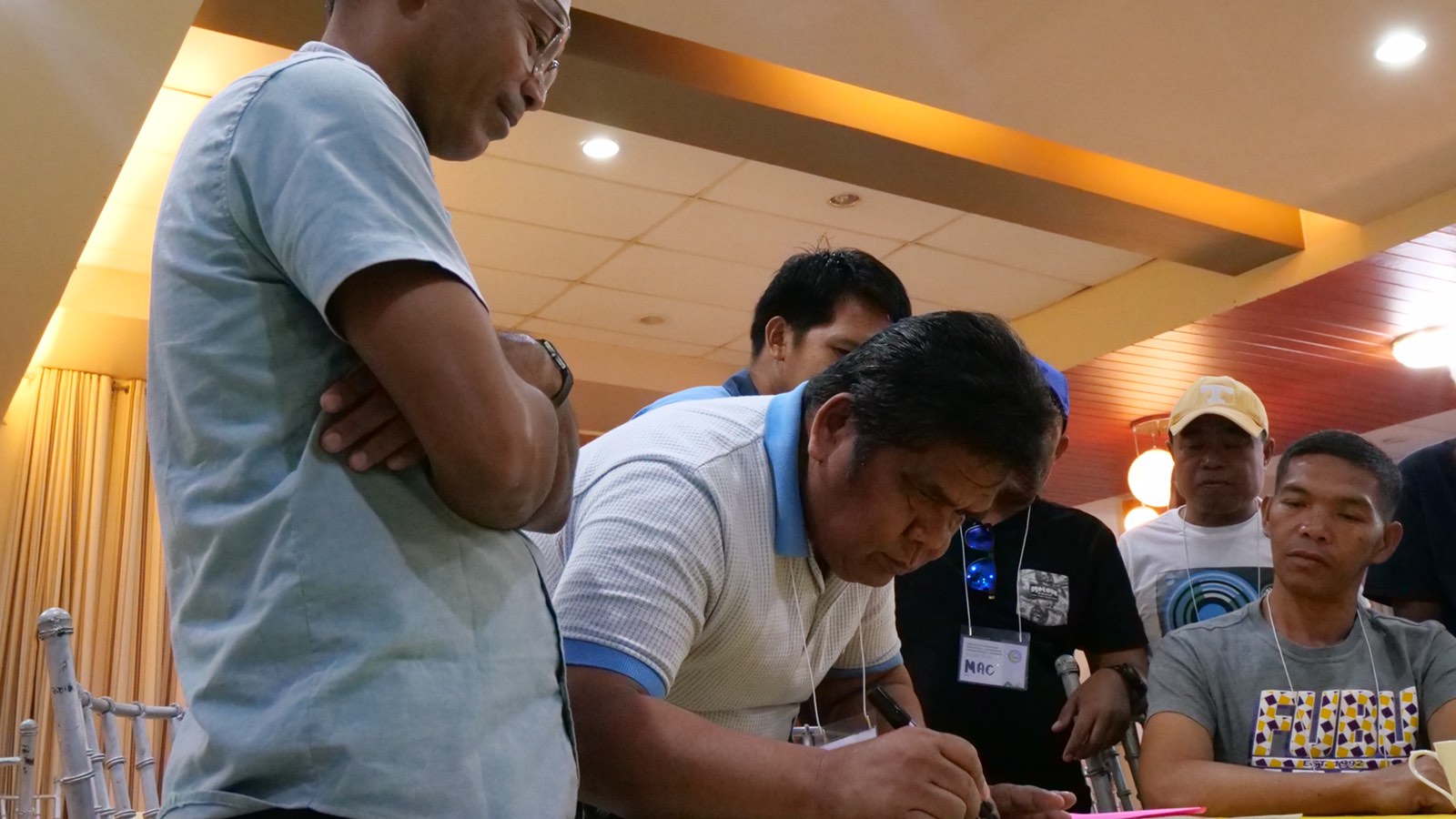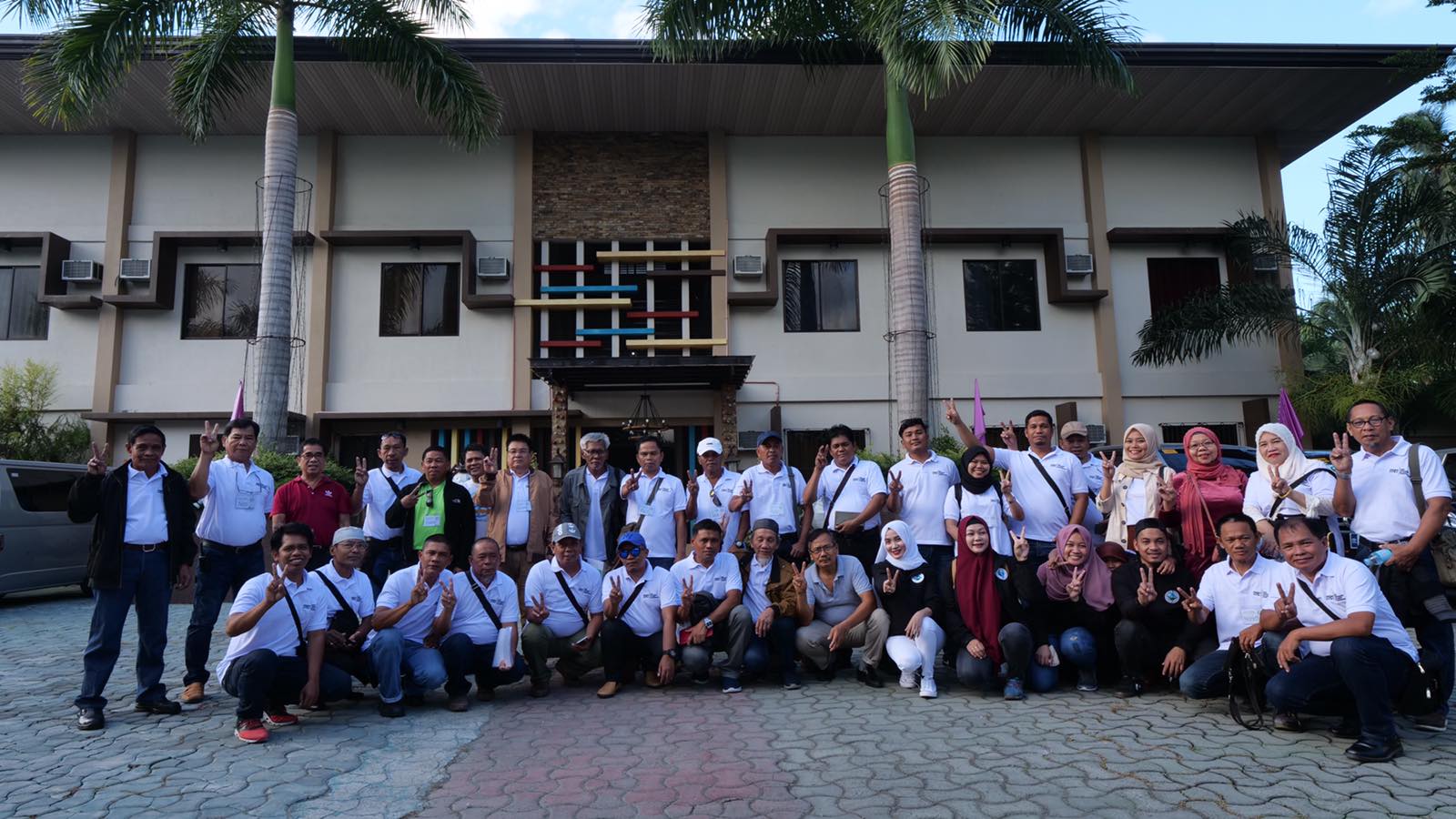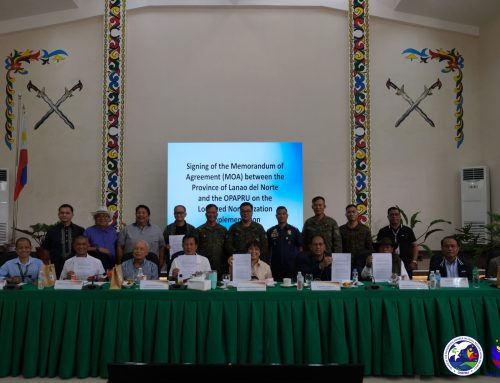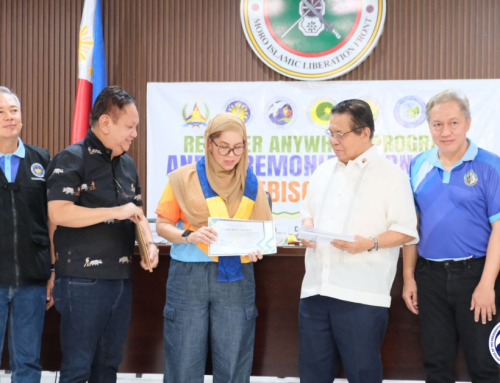SARANGANI PROVINCE — As the second phase of the decommissioning process for the more than 3,100 Moro Islamic Liberation Front – Bangsamoro Islamic Armed Forces (MILF-BIAF) members continues, another key component of the normalization track has shifted to high gear.
The Joint Task Forces on Camps Transformation (JTFCT) recently concluded here a one-week capacity development training and exposure program on good governance and leadership attended by former MILF-BIAF combatants coming from the six government-acknowledged camps in the Bangsamoro region.
As contained in the Annex on Normalization under the Comprehensive Agreement on the Bangsamoro (CAB), the MILF members shall undergo the process of decommissioning and return to mainstream society, as their camps are transformed into peaceful, productive and resilient communities.
The 60 MILF participants included base and brigade commanders, political committee representatives, Bangsamoro Islamic Women’s Auxiliary Brigade (BIWAB) members, and other community representatives from camps Abubakar, Rajamuda, Omar, Badre, Bilal, and Bushra.
Sarangani: A model for inclusive governance
The training-cum-exposure program featured lectures and discussions on key values, principles, and methodologies that will help the MILF leaders in the camp’s transformation process.
The participants met with Sarangani Governor Steve Chiongbian Solon who presented his province’s key programs and projects which are all anchored on inclusive and participatory governance.
“Try as much as possible to get the community involved. We can talk about peace, we can talk about security, but if our constituents don’t have income, it will be hard for us to develop,” Solon said.
The Province of Saranggani is a Seal of Good Local Governance (SGLG) awardee, aside from receiving a host of other awards for its outstanding good governance practices.
According to Solon, the provincial government of Saranggani is focussed on implementing initiatives which aim to actively engage the community’s tri-people — Muslims, Christians and Lumads.
“You really have to be inclusive because we are all brothers and sisters no matter what,” he added.
Sheikh Bashir Abdulbayan, JTFCT camp coordinator for Camp Badre, shared his observations on the good governance practices of the province.
“We are thankful for being here. We have learned much from your programs here and from the governor, which we can bring home and use for the development of our camp. We may be far apart but our hearts are closer because our goals are the same,” Abdulbayan said in the vernacular.
The participants also joined an experiential learning session on barangay administration and management at Sapu Masla in Malapatan, Saranggani led by Brgy. Chairman Moner Calulong.
During the discussions, Calulong presented the municipal government’s programs for indigenous peoples (IPs) and support to provincial programs such as the Sulong Kapayapaan.
Malapatan is known for being a melting pot of various tribes, cultures and religions. But despite this multi-ethnic setting, its people live in peaceful co-existence.
Calulong recalled that the area used to be conflict-stricken, but it has gradually developed into one of the most peaceful and progressive municipalities in the province.
Sarangani prides itself for adopting its own Local IP Code. The provincial government is also constructing a Moro Resource Center for its Muslim residents.
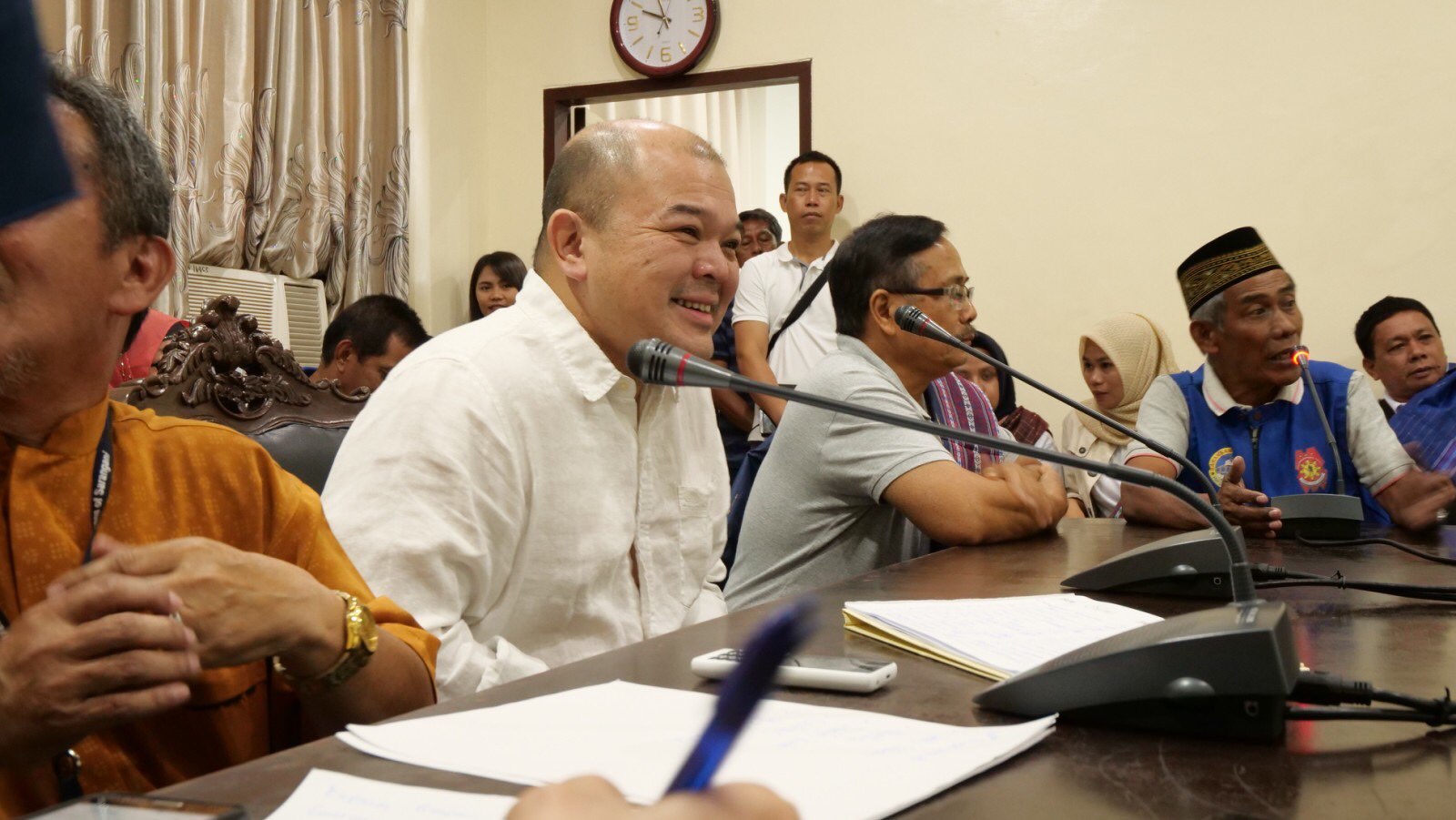
Good governance, key to camps transformation
Maguindanaon Development Foundation, Inc (MDFI) Executive Director Dausay Daulog Al Haj, said that they see a promising future for the Bangsamoro region, especially with the milestones achieved in the Bangsamoro peace process.
“Now that we are witnessing the establishment of structures and mechanisms, we see very promising developments in the BARMM. We hope that all of these will push through leading to the realization of plans,” Daulog said.
Engr. Casana Mandal, head of GPH-JTFCT Secretariat, noted that Saranggani is an ideal model for inclusive governance, which the Bangsamoro Autonomous Region in Muslim Mindanao (BARMM) can follow.
“The exposure program is part of the capacity development programs that really have a good impact. We saw that Saranggani observes inclusive good governance so our team together with MDFI decided to reach out and bring MILF representatives from the camps,” Casana said during the meeting with the provincial governor.
The participants also expressed their excitement in crafting their respective camps transformation plans and implementing them. They committed to use a participatory-based approach in the drafting of these plans.
Abubakar Akmad, a representative from the Bangsamoro Islamic Armed Forces (BIAF) said: “This exposure is good because we are still starting. So, we really need to plan. If there are some things missing, we can start addressing them because change is coming. We are now BARMM.”
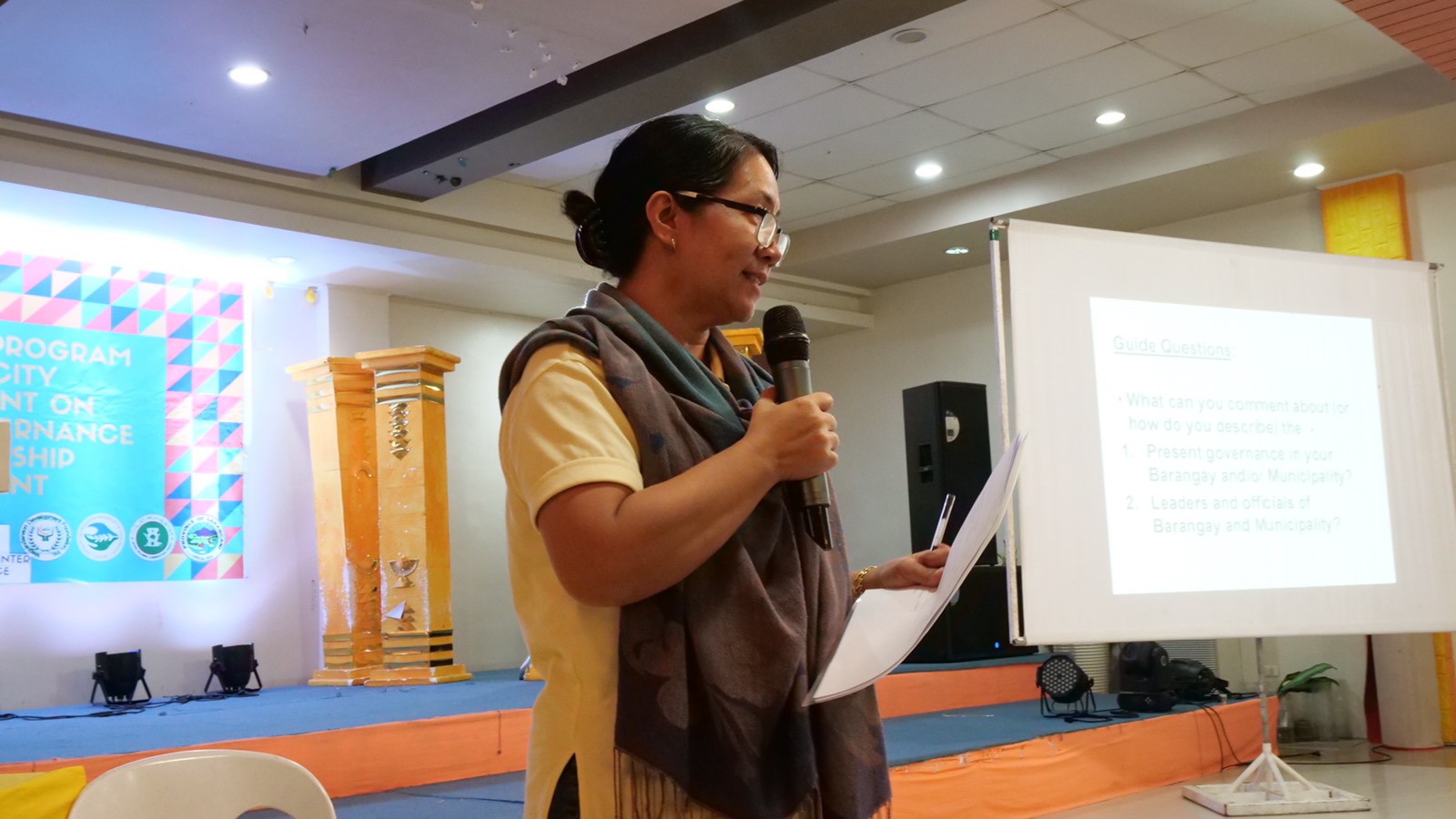
Funds for cross-cutting normalization programs
Presidential Peace Adviser Carlito G. Galvez Jr. said that for 2020 alone, PHP 2.4 billion has been allocated to implement various aspects of the normalization track covering the areas health, education, technical and livelihood programs and assistance, agricultural support, social interventions, and camps transformation.
“Through these various capacity-building programs, we want to help the MILF camp and community leaders to develop and implement their own programs, projects and activities to accelerate the transformation of their areas into peaceful and productive communities,” Galvez said.
The capacity-building program was spearheaded by the Maguindanaon Development Foundation, Inc. (MDFI), Provincial Government of Saranggani, Office of the Presidential Adviser on the Peace Process (OPAPP), and the United Nations Development Program (UNDP) through its Support to Peacebuilding and Normalization (SPAN) Programme. ###
